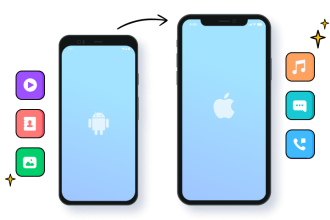Healthcare is not just being updated, it’s being completely reimagined through technology. Hospitals, clinics, and health systems are moving away from traditional record management, care delivery, and patient interaction toward systems based on data and focused on patients. What used to depend on paper and separate software now depends on connected platforms, instant analytics, and smart tools that help improve results and efficiency.
But there’s a problem: you can’t make this transformation happen using old systems. Using outdated tools can slow down progress, create holes in how care is coordinated, and make it harder to ensure accurate data and patient involvement. The success of healthcare organizations depends on modern digital tools, and software development is at the heart of that need.
Making custom healthcare software is more than just coding it. It’s focused on making healthcare more flexible and intelligent: connecting data among providers, providing digital tools for patients, and using AI to assist clinicians.
In this article, you’ll see how software development is helping healthcare move forward in the digital age. You’ll understand why common solutions are not enough, how custom-made tools can open up new opportunities, and what leaders need to think about during this change. If you’re curious about how to make your healthcare operations ready for the future and provide the advanced care today’s market requires, this is what you need to know.
How Software Development Drives Digital Innovation in Healthcare
Healthcare transformation today relies heavily on custom software programs. EHRs are now more than just digital storage — they’re turning into smart systems that help with clinical tasks and make decisions based on data. Today, patient engagement platforms help people connect with their healthcare by letting them book online, follow customized learning materials, and talk to professionals in real time. Telemedicine also lets providers consult, check up, and run certain tests from any place.
The best benefit comes when these tools rely on the latest technological advancements. AI helps doctors detect health problems in patients more quickly and accurately. Wearables and sensors inside the home are connected to the Internet and constantly monitor patients, sending updates to caregivers as they happen. By looking at large amounts of data, these tools help healthcare providers predict problems and take early action for better results.
The digital ecosystem can only function when interoperability exists. There should be no problems with information being exchanged between providers, payers, and patients. It is necessary for healthcare organizations to choose technology that can adapt as their needs develop. All procedures must be carried out according to HIPAA and GDPR rules to protect patient data.
This is where specialized healthcare software development services come in. These experts design, build, and maintain tailored platforms that meet the unique clinical, operational, and regulatory demands of healthcare environments. Their work is supported by robust QA testing services, ensuring every feature performs flawlessly, integrates smoothly, and scales securely. Together, these development efforts don’t just digitize healthcare — they reinvent it for a smarter, faster, and more connected future.
Strategic Benefits for Providers and Patients
Improving operational efficiency is one of the biggest benefits of healthcare digital transformation. Automation removes the need for staff to do the same tasks over and over which saves paper and allows them to focus on more important work. For instance, using technology to remind patients about appointments, handle billing, and renew prescriptions cut down on errors and saves you time. Better use of resources allows providers to manage staff, use equipment more efficiently, and schedule activities, which results in lower costs and better productivity.
Digital platforms make the patient experience much better. Recommendations can be provided to patients through mobile apps, so they can follow them more easily. Because health data is available all the time, patients can stay informed about their medications, see their progress, and safely talk to their care team. If you add remote consultations, it becomes easier for people in rural or underserved areas to get care.
Another important benefit is that data security and compliance are taken care of. Custom healthcare systems are built to follow HIPAA, GDPR, and other regulations to keep all health data safe at every stage. Usually, off-the-shelf tools are not up to the task, so custom solutions are needed for effective risk management and lasting stability.
Healthcare organizations that use these digital tools gain an obvious advantage over their competitors. You make your brand known as a modern, patient-focused provider, and this reputation counts. Being able to provide smooth, technology-driven care will help leaders stand out in a busy market.
Conclusion
The effect of software development on healthcare makes it clear that using custom digital solutions is now essential rather than merely helpful. Software development is advancing healthcare technology by increasing patient participation, automating tasks, improving diagnostics, and safeguarding data.
The main point is that digital transformation is not only about using the latest technology. It is focused on developing the right tools — solutions that address your organization’s needs, enhance care, improve patient results, and streamline operations. Those in healthcare leadership who use this approach are most likely to succeed in a world where innovation is no longer optional.














